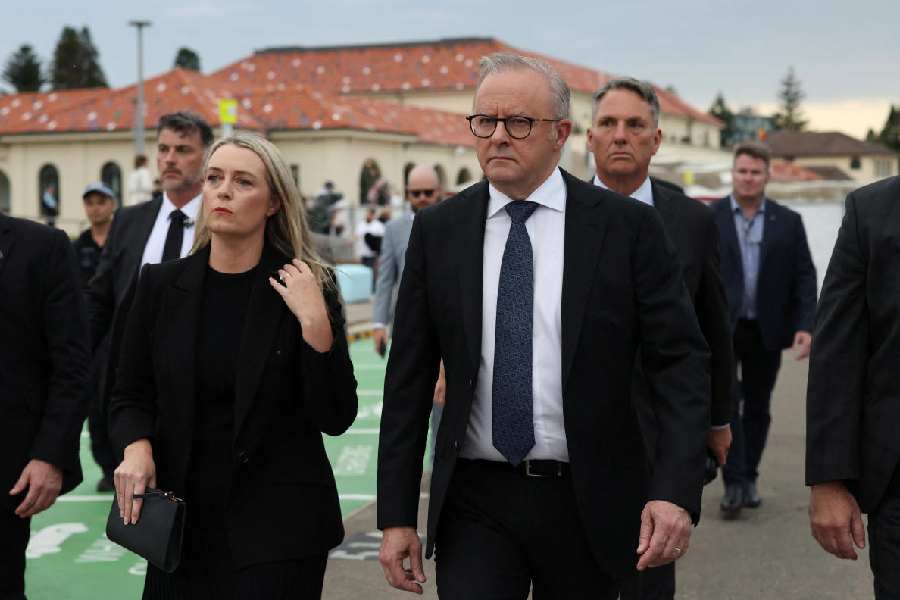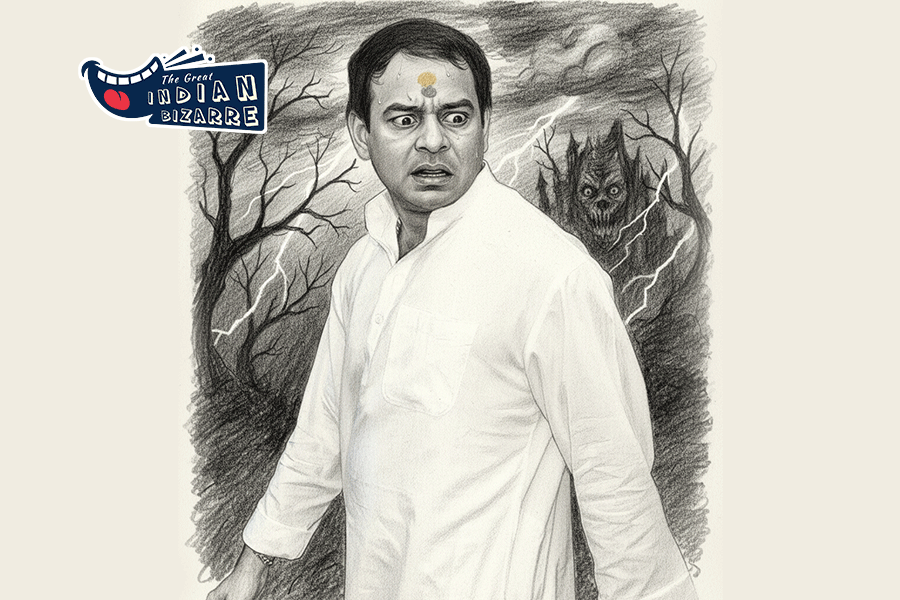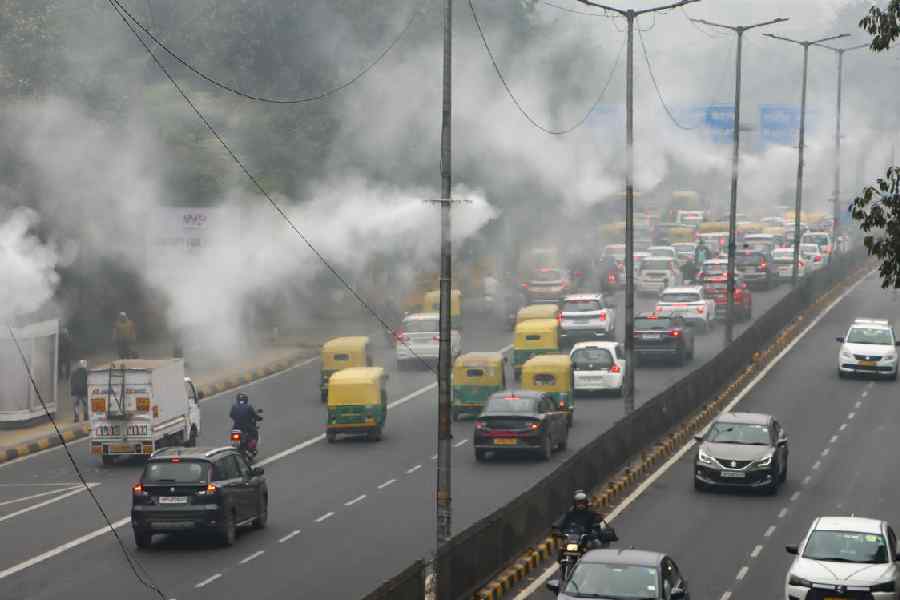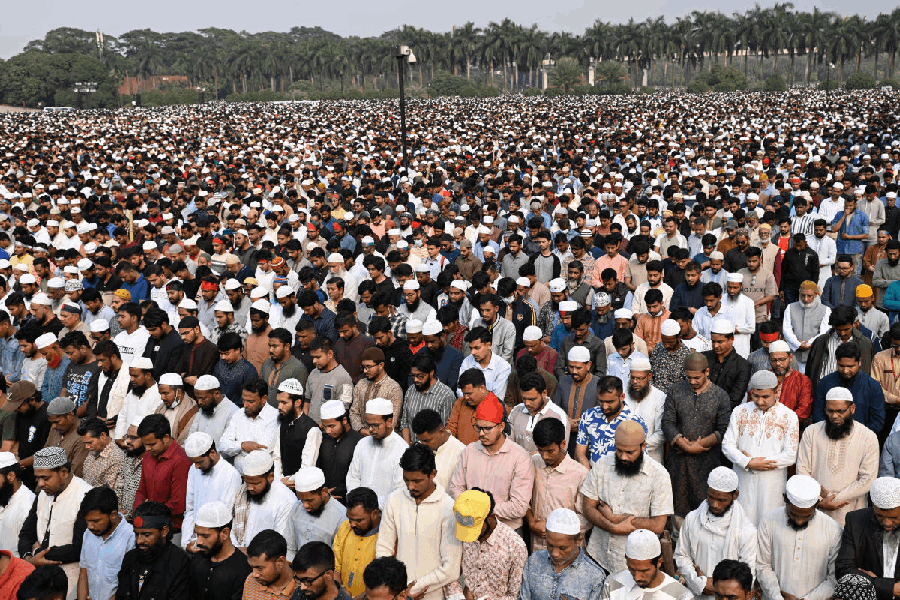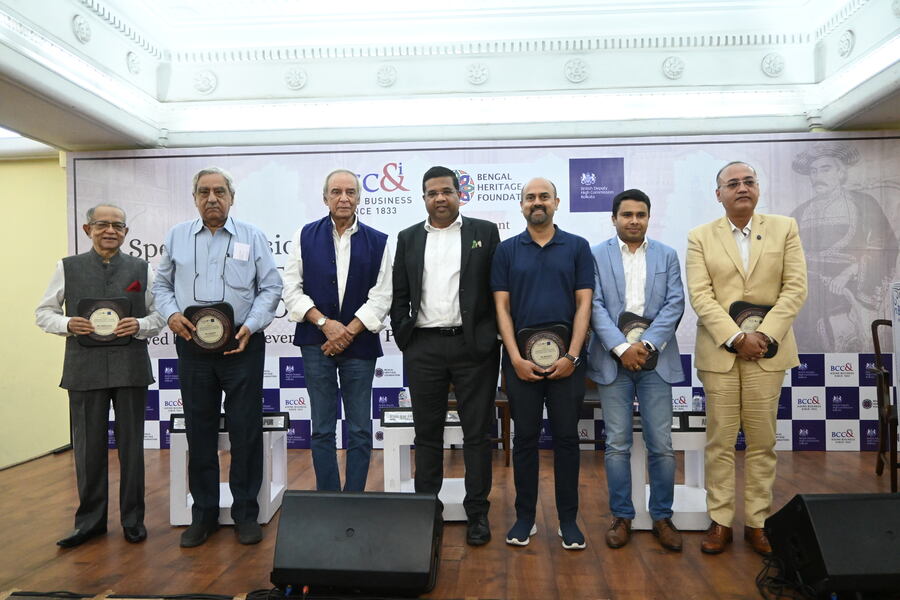
The Bengal Heritage Foundation, a UK-based charity, in collaboration with the British deputy high commission Kolkata and the Bengal Chamber of Commerce and Industry (BCC&i), organised ‘Dwarkanath Tagore: Visionary of a New Era’ at BCC&i’s Williamson Magor Hall on August 7. Discussions on Dwarkanath Tagore, entrepreneurship and business in Bengal were followed by a musical performance by Prabuddha Raha
Photographs by Amit Pramanik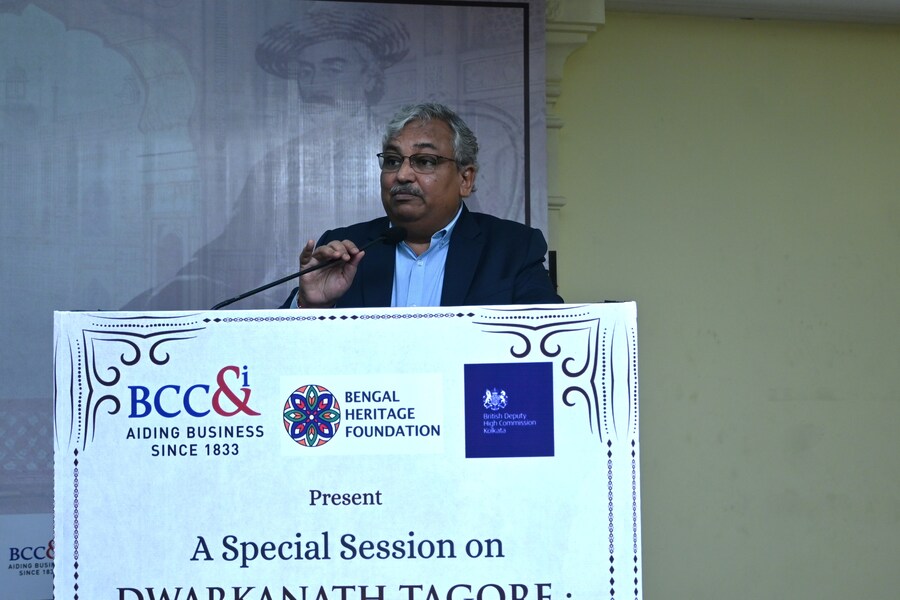
Gautam Ray, president of BCC&i, delivered the welcome address, highlighting Dwarkanath Tagore’s legacy as a visionary and business pioneer of colonial Bengal. He reminded the audience of the avenues explored by Tagore and his membership at the Bengal Chamber. “Tagore’s social and commercial contributions reiterate the importance of Bengalis venturing into business,” observed Ray
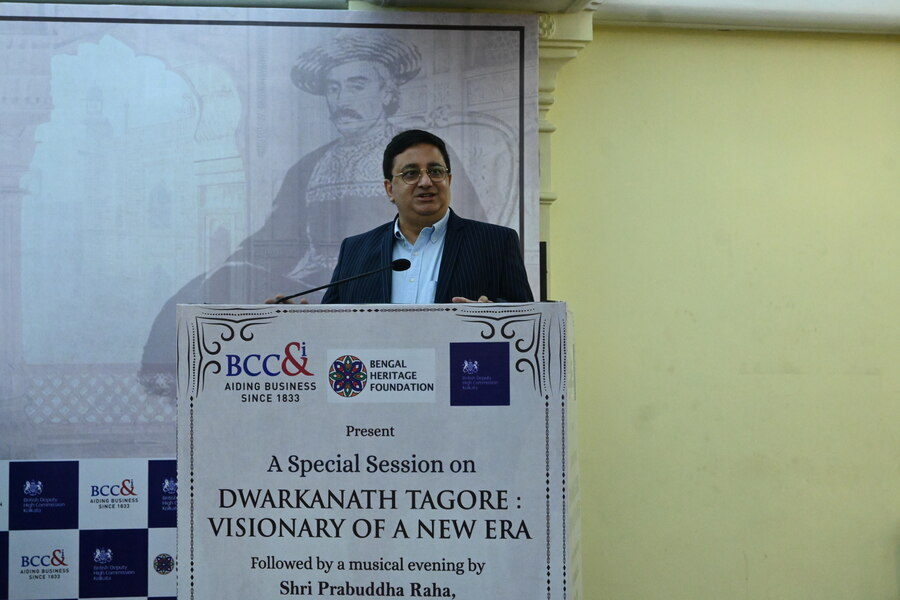
BHF’s Sourav Niyogi took to the stage to reiterate how vital Tagore, who has polarised historians, remains for Bengalis, before sharing a story of discovering Tagore’s grave at the Kensal Green Cemetery in London. Niyogi, with his friends and colleagues at BHF, went on to rehabilitate that grave and organise an annual memorial for Tagore. “Bengal has never seen an entrepreneur like Dwarkanath Tagore,” said Niyogi, commending Tagore’s progressiveness
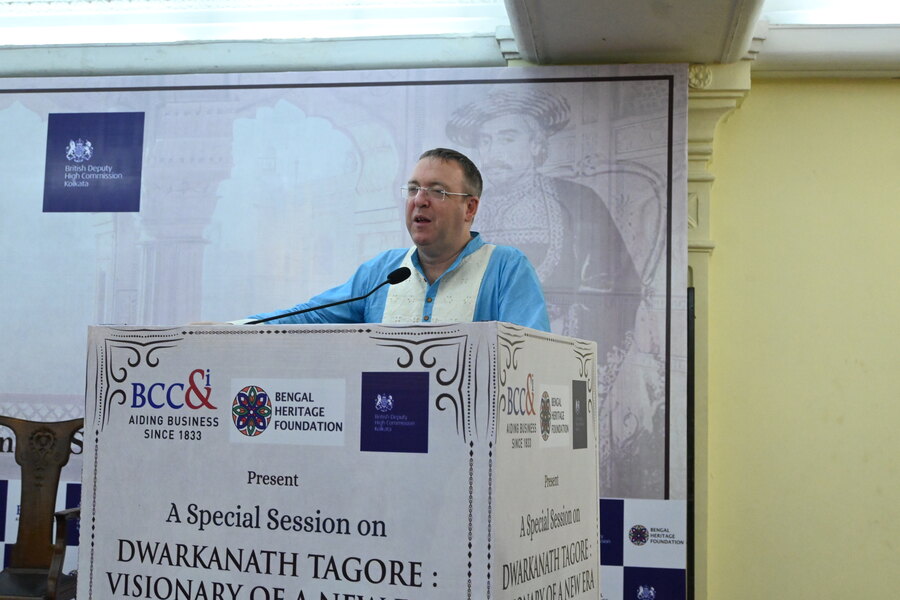
Andrew Fleming, the British deputy high commissioner to Kolkata and chief guest for the event, deliberated on Bengal’s potential to attract businesses. Fleming urged Bengal to brush aside the ‘negatives’ associated with the state’s business potential and change the narrative “by emphasising on the positives”. Fleming compared Bengal to Vietnam, presenting the latter as an example of how regional challenges can be overcome to grow into a booming economy
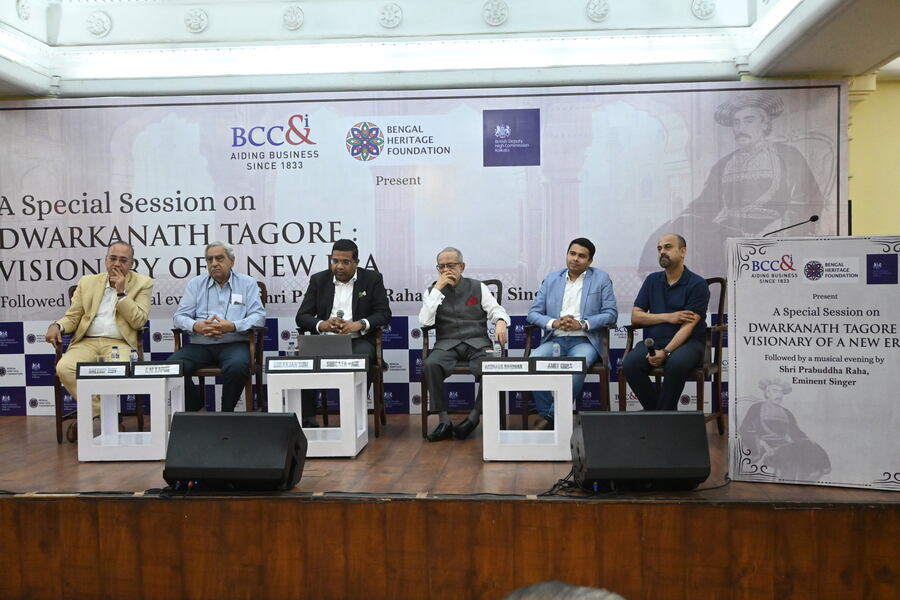
Following Fleming’s speech was a panel discussion on Tagore and business in Bengal, including (L-R) Sreedip Roy, a 10th-generation jeweller; G.N. Kapoor, chairperson of the heritage committee of BCC&i; Subrata Paul, president of the Indo-British Scholars’ Association; Arunava Bardhan, business advisor at Adamas Tech Consulting in the UK; and BHF’s Amit Guha. The conversation was moderated by BHF president Suranjan Shome. The panel addressed different elements of business in Bengal, from the role of political and educational factors to a wider understanding of Bengalis (including Marwaris and Gujaratis in Bengal) to student exchange programmes between India and the UK to encourage young minds to take up entrepreneurship. All the panellists were subsequently felicitated by actor and author Barun Chanda
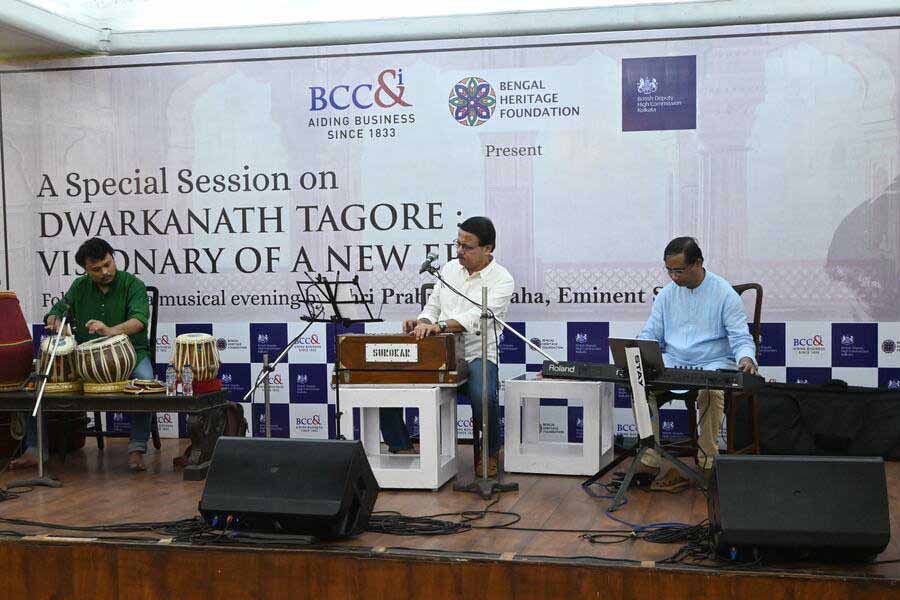
Prabuddha Raha, a veteran singer, closed out the programme by presenting a series of popular songs, accompanied by his percussionist Tutul and Surajit Das on the keyboard. The songs ranged from Rabindrasangeet like ‘Esho Shyamolo Sundaro’ to Bollywood classics like ‘Geet Gata Hoon Main’. The performance concluded with Salil Chowdhury’s ‘Dhitang Dhitang Bole’, as a tribute to the musician’s 100th birth anniversary next year
